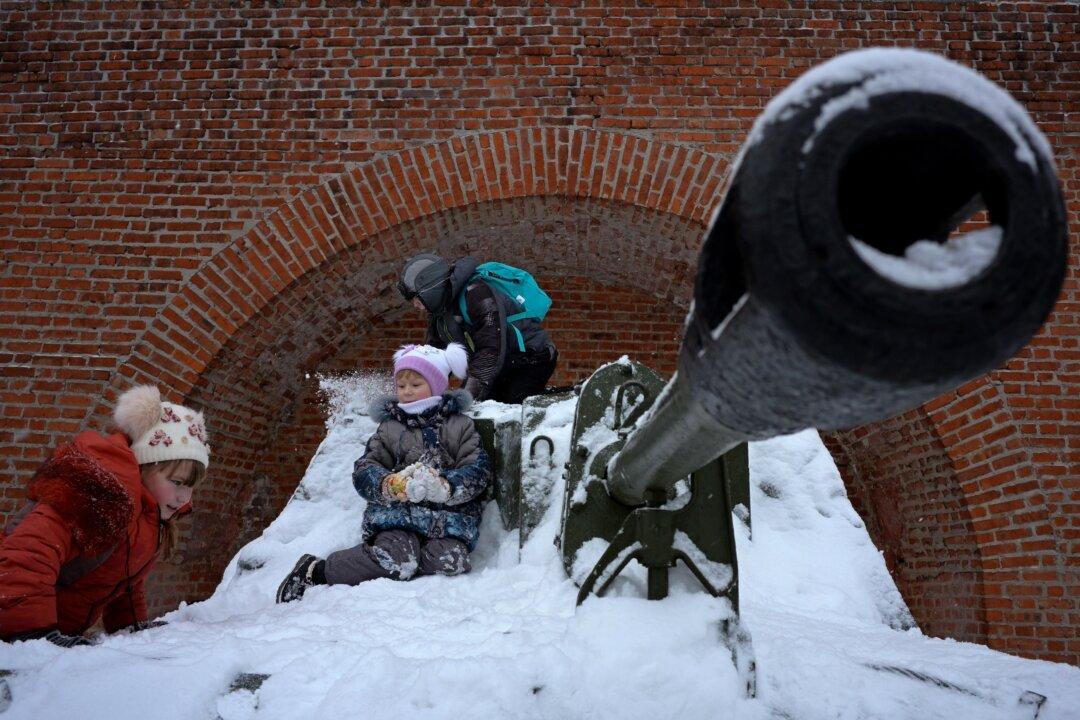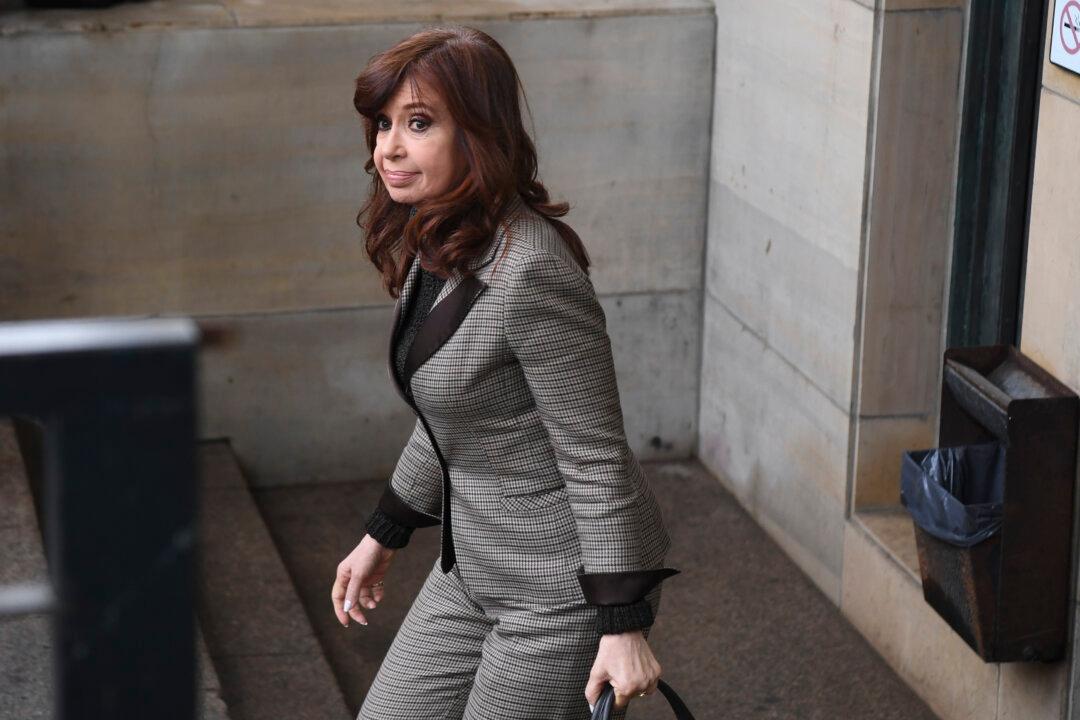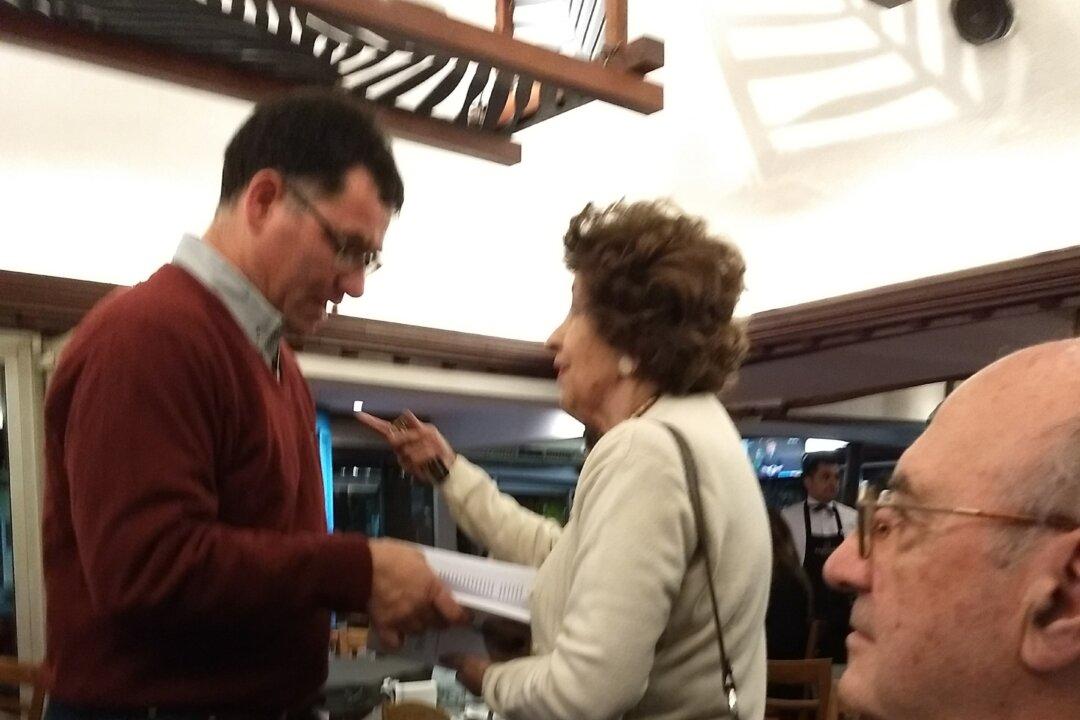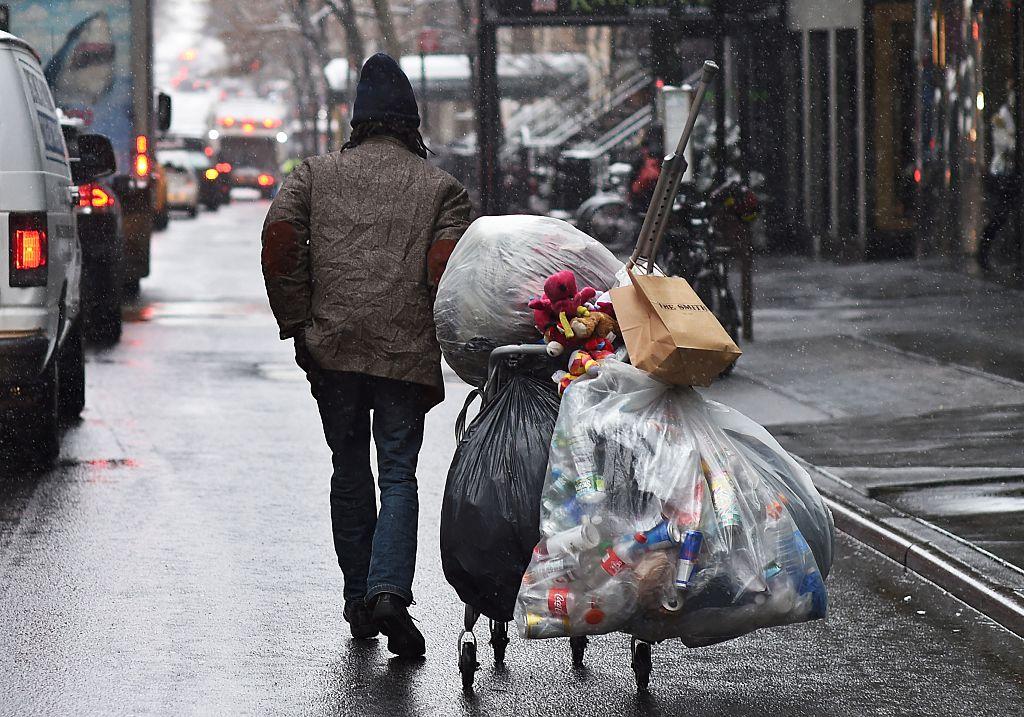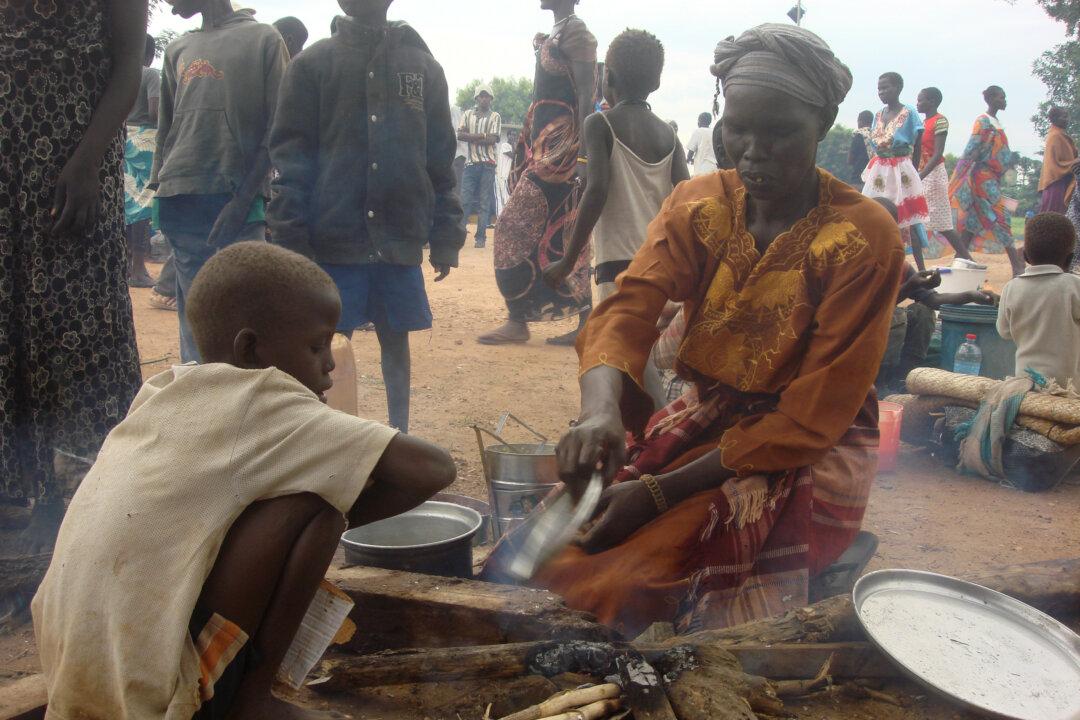I’m sitting at a McDonald’s, drinking cappuccino and eating a croissant with a spectacular view of one of the most famous monasteries in the city, if not the country.
This situation would not be unusual except that it takes place in St. Petersburg, and the monastery is not a common one. It is the Alexander Nevsky Monastery, named in honor of the most important and admired hero in Russian history.
Nor is it common that two countries’ icons, McDonald’s and the Nevsky Monastery, are facing each other. In the monastery are buried prestigious Russian writers, musicians, and artists. The croissant I am eating is a French culinary icon. The cashier at the McDonald’s doesn’t look Russian, but rather looks as if she is a native of one of the former Soviet republics.
This scene is just one more example of the scope of globalization and how it affects the world today.
The Impact of Communism
The years of communism have left their mark on the character of many Russians. They seem introspective and disillusioned, perhaps due to lack of certain freedoms at the time of the Soviet Union, a situation I also observed in Armenia several years ago.
As some young Armenians told me at the time, and as I was also told by several Russian friends, during the years of the Soviet Union, although their basic needs were covered, there was enormous pressure not to be different and creative, thus giving the people a sense of oppression that eventually influenced their character.
After the breakup of the Soviet Union in 1991, Russia went through a period of great ferment.
Angela Sem, a young Russian who now lives in New York, told me, “After the destruction of the Soviet Union there was a period of confusion, of lack of rules and lack of business ethics where people with strong personal initiative took advantage of the situation to start building huge fortunes. Those people close to power were obviously the most favored.”
The result is that today Russia is developing as a “bipolar” society, where a small minority has enormous wealth and the vast majority of the population lives in middle class or lower-middle class standards.
The Allure of Exile
The lack of opportunities and growing economic difficulties entice many young people (among them many artists) to emigrate, particularly to Europe and the United States.
Those that emigrate are mostly young people who want to broaden their horizons and have better opportunities. They feel curtailed by the prevailing climate of corruption in the country. For example, merchants who refuse to pay bribes are visited by fire inspectors, tax auditors, or the police until they give up and pay—or they have their businesses closed.
It is estimated that 1.3 million Russians emigrated over the last decade, an even greater number than those who left after the collapse of the Soviet Union in 1991. A survey conducted in 2011 found that 21 percent of Russians want to emigrate, compared with 5 percent who wanted to in 1991.
I walk through a suburb of Moscow where, despite good weather, I find few people walking on the streets. Suddenly I feel disoriented, unable to find the entrance to the subway I was looking for.
I stop a woman walking with her young daughter and ask her, in my basic Russian, for directions. She quickly replies in Russian. When I asked her to speak more slowly she tells me, now in perfect English, where the subway entry is.
We have a brief chat and I ask her for her view on the current situation in Russia, and she explains the difficulties faced by young people who want to have a job and a salary that allows them to live well.
According to the government, she tells me, Russia has a very good economic situation. And then she says, in a tone of irritation and almost of despair in her voice, “If we are so rich, why then are we so poor?”
She also complains about the great immigration from the former Soviet republics to major Russian cities. “Pretty much we are being crowded out,” she says sadly. She was responding politely to what many Russians seem to be intolerant to: the growing immigration of people from neighboring countries.
Russian authorities are particularly concerned about Chinese immigrants, who they see as part of a “Chinese infiltration” that they must counter with restrictive immigration policies.
Russia as an Economic Power
The Russian economy is the ninth largest in the world. Its vast territory contains huge amounts of valuable natural resources. The Ural Mountains are full of minerals and gas and oil reserves, and there is plenty of coal and timber in Siberia and Russia’s Far East.
However, most of these reserves are located in remote, harsh regions far from ports, a situation that makes their exploitation very expensive and demands large capital investment. In addition, widespread corruption and lack of investment in infrastructure negatively affects the economy.
Since an economic recession in late 2008 and early 2009, Russia has experienced continuous growth. In 2011, its GDP grew by 4.2 percent, one of the highest among the world’s leading economies. Oil and gas continue to be the country’s main exports, which makes Russia highly vulnerable to world energy prices, as shown by the recent dramatic decreases in the price of oil.
Growing state capitalism is having a negative effect on Russia’s economic development. Government-owned companies are eliminating private enterprise. Rosneft, the state-controlled oil giant, and Gazprom, the natural gas monopoly, became two of the largest energy companies in the world after eating up private energy companies.
An Enigma Called Putin
With the disintegration of the Soviet Union and the Communist Party, and Putin’s subsequent rise to power, Russia is probably the first case in the world of a country led by its secret police.
In the 19th century, Fyodor Tyutchev, considered one of the last great Russian romantic poets wrote the following:
Who would grasp Russia with the mind?
For her no yardstick was created:
Her soul is of a special kind
By faith alone appreciated.
This difficulty in understanding applies particularly to Vladimir Putin, one of Russia’s most enigmatic personalities.
In Russia, words and symbols are more important than reality. Putin, either as president or as prime minister, has repeatedly tried to use symbols to rally support for his policies. One of these symbols has been the idea of Russia as an isolated fortress, surrounded by powerful enemies, particularly the United States.
Despite the use of these symbols, however, I have noticed a great deal of antagonism directed toward Putin, particularly from young people and intellectuals of all ages.
Many people believe that, although there has always been corruption in Russia, it has never been as great as now. This feeling is compounded by Putin’s maneuvers to stay in power indefinitely, which causes tremendous concern among Russians.
Russia’s Future
Proud of their past, Russians are more anxious than ever to freely express their political desires, and to grow and thrive in an atmosphere of peace and tranquility, something not possible with Putin in office.
Since taking power, Putin has exacerbated the negative aspects of his regime: consolidation of power, strict control of the media and the economy, electoral manipulation, and persecution of those who oppose his regime. However, he has gained popularity after the annexation of Crimea and his support for ethnic Russians living in Ukraine.
Given these circumstances, it is impossible to predict with certainty the direction events will take. It is clear, however, that Russian leaders face a wide and complex range of problems. How they respond to these challenges will determine the kind of country that Russia will become.
Dr. César Chelala is a winner of an Overseas Press Club of America award and a national journalism award from Argentina.
